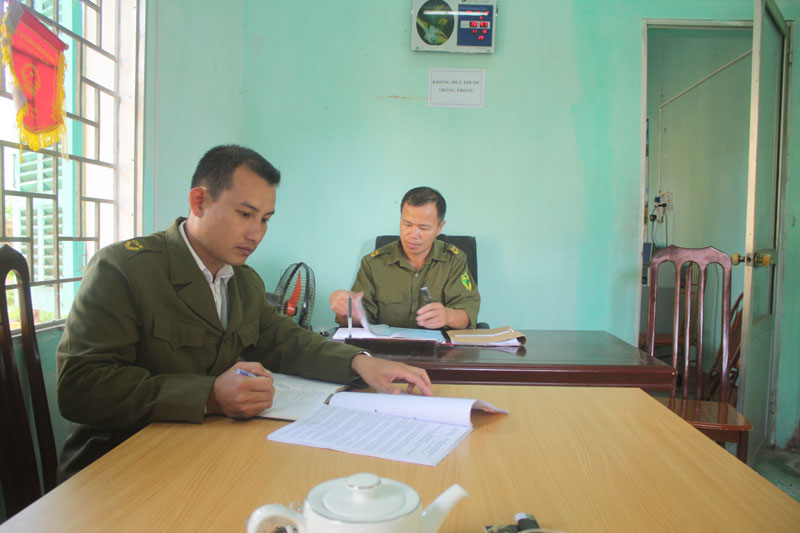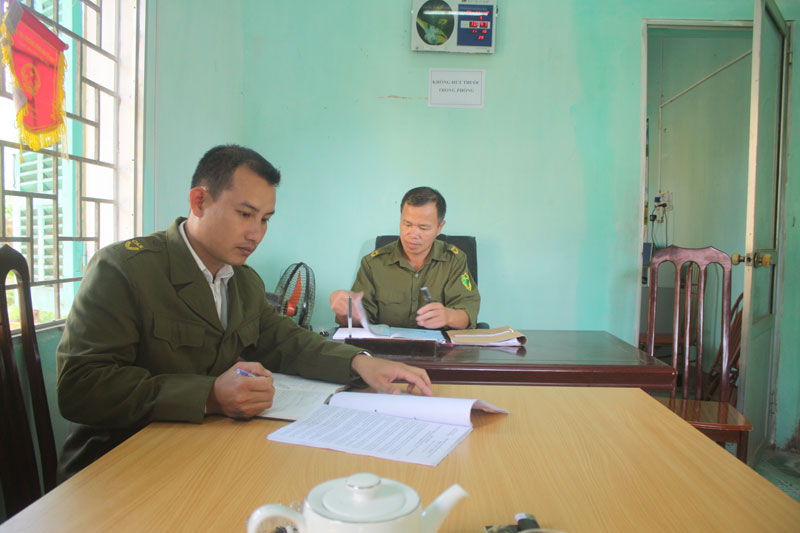



Police in Chieng Chau commune (Mai Chau
district) handle tip-off from the self-managing group of families on security
to prevent behaviours disturbing the life of locals in the commune.
The Party Committee and People’s Committee
of the commune assigned the Party cell in Mo village and head of the village to
work with the Fatherland Front branch on the establishment of the self-managing
group of families on security. Those families would help each other in economic
development and keep watch on their own relatives, preventing them from falling
into law violation and drugs addiction.
Six months after the start of the model’s
operation, crime, law violation cases and social evils were significantly
reduced. Conflicts were solved right at the village. On the basis of the
result, the People’s Committee of the commune decided to expand the model.
After 12 years, from just one group, the
commune is currently having 36 self-managing groups of families on security,
with all of the 927 households participating.
All groups devised their regulations, action
plans and elected their management boards, communication committees to manage
all activities. The groups hold a meeting once in two months. In case of
emergency on security and order, they will hold an urgent meeting to address
the issue and share experiences.
The self-managing groups of families on
security have encouraged all residents and households to proactively maintain
security and order, enhance prevention of crime and drugs, prostitution and
HIV/AIDS. They also contribute to reducing traffic accidents, superstition,
child marriages, burglary, robbery and other social evils in the commune.
With this model, local people have proactively
prevented and denounced criminals. When members of the groups show signs of
violation toward the law and groups’ regulations, they will receive warnings
and be prevented.
In 2017 and the first six months of 2018,
police in Chieng Chau received more than 20 tip-offs from the groups, which
helped prevent activities affecting security conditions in the locality./.